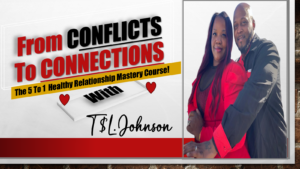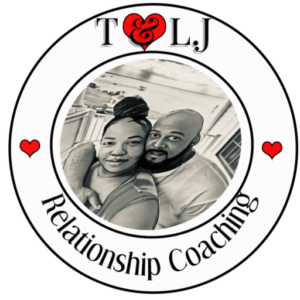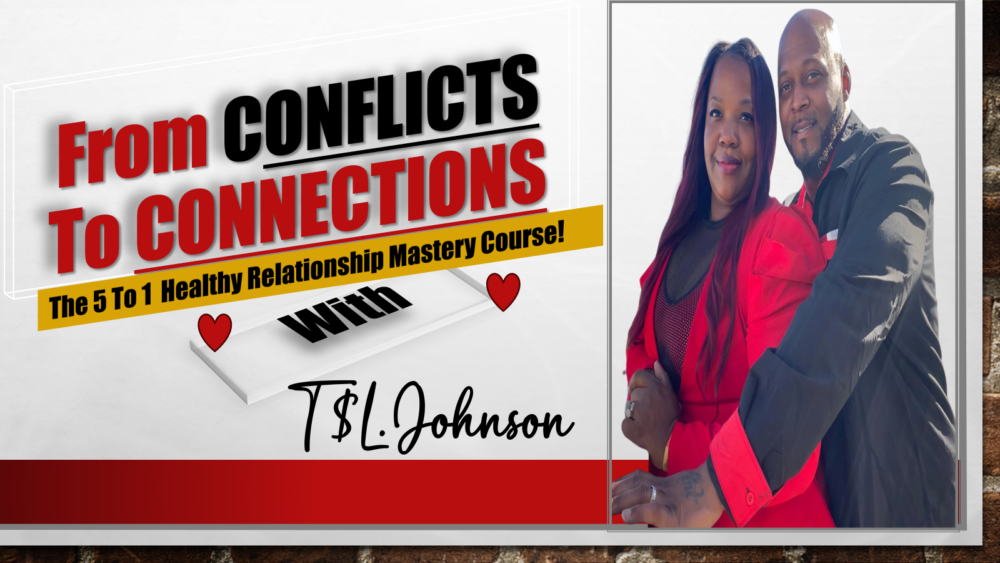Emphasize Empathy
Understanding Perspectives
When I think about building bridges with my words, empathy is where it all starts. It’s about putting myself in someone else’s shoes, truly understanding their experiences and feelings. This isn’t always easy, let me tell you. I’ve had to catch myself a few times when I wanted to jump to conclusions rather than listen.
Practicing empathy involves active listening and reflecting back what the other person has said. I recall a time in a heated debate where I paused, asked clarifying questions, and really listened. What came out of that moment was an enlightening discussion, instead of an angry argument.
So next time you find yourself in a tough conversation, remember: empathy is your best friend. Let go of pre-judgments, drop the defensive walls, and open your heart to understand the other person’s viewpoint. It’s life-changing.
Choosing Kind Words
The power of words is enormous, and choosing kind ones can truly transform a conversation. I still remember when a simple compliment completely shifted someone’s mood. Using words that uplift rather than tear down creates a warm environment for dialogue.
I’ve made it a habit to sprinkle encouragement into my conversations, whether it’s in a casual chat or during more serious discussions. This often invites the other person to share more openly. In my experience, kindness not only builds bridges; it strengthens them.
It’s amazing how a few thoughtful words can foster trust. When people feel valued and respected in a conversation, they are more eager to engage and collaborate. So, next round of discussions? Aim for kindness—it pays off big time.
Be Open and Honest
Look, honesty should never be taken lightly. When I strive for openness, I genuinely believe it promotes authenticity in my relationships. I’ll be the first to admit that it can make things uncomfortable sometimes, but what’s the alternative? Fake pleasantries don’t get anyone anywhere.
I’ve learned that honesty—when paired with tact—can clear up misunderstandings before they spiral out of control. One time, during a tough conversation with a colleague, I laid my cards on the table, sharing my concerns candidly. The relief was palpable, and it brought us closer instead of driving us apart.
So, lean into honesty. Strive for transparency in your conversations and watch as those walls start to crumble. It’s not just about being truthful; it’s about allowing for vulnerability, which enables a real connection to develop.
Encourage Collaboration
Focus on Common Goals
In my experience, collaboration isn’t just about working together; it’s about discovering shared values and goals. It’s like a dance where both partners need to be in sync. I’ve found that bringing attention to what we both want has a way of uniting even the most opposing sides.
Reminding everyone involved about shared objectives can redirect a challenging conversation into a productive one. I recently participated in a project where differing opinions threatened to derail things. By highlighting our common goal, we found common ground and crafted a way forward together.
Next time you hit a roadblock in communication, remind everyone of the bigger picture. It’s a great way to foster teamwork and reduce tensions. After all, we’re all on the same team, right?
Facilitate Open Dialogue
Creating spaces where everyone feels comfortable expressing their thoughts can be a game changer. Whenever I’m in a meeting, I encourage open dialogue by inviting diverse opinions. It’s pretty incredible how different perspectives can lead to innovative solutions!
I’ve noticed that when people feel safe to speak up, it enhances trust. In one instance, I held a “no wrong answers” brainstorming session. The energy and creativity that flowed from that openness were palpable—like a light bulb moment that sparked a wave of collaboration.
So encourage open dialogue! Invite feedback and create an environment where that feedback can flow freely. You’d be surprised how much richness this adds to conversations.
Celebrate Differences
Embracing diversity in conversations is absolutely vital. I’ve learned that we’re all unique, bringing different experiences and perspectives to the table. It’s these differences that enrich discussions and lead to breakthrough ideas. So let’s celebrate that!
Whenever I engage in diverse groups, I make a point of acknowledging unique contributions. Just the other day, during a meeting, I praised a colleague’s perspective, and it encouraged others to share their own. Suddenly, the conversation was more vibrant!
Recognizing and celebrating differences not only builds bridges; it turns them into pathways for collaboration. So next time you interact with someone who’s different from you, embrace that. It’s a chance to learn something new!
Promote Active Listening
Engage in the Conversation
Active listening is more than just hearing words; it’s about being fully present and engaged in the conversation. I’ve made it a point to practice this daily. One technique that works wonders for me is to pause and reflect on what someone has said before responding—a total game changer.
In my experience, when you show genuine interest in what others say, it encourages them to do the same. I’ve been in discussions where just one person actively listens, and it transforms the dynamic—everyone feels valued, and the conversation flows much smoother.
So, next time you find yourself in dialogue, ensure you’re actively listening. I promise it’ll make all the difference in fostering understanding and connection!

Reflect Back What You Hear
Reflecting back is a powerful technique that shows you are engaged and truly understand what’s being said. I often paraphrase my partner’s words or ask clarifying questions to make sure I grasp the full context. It’s so valuable; it ensures no assumptions are made.
Using phrases like “What I’m hearing you say is…” or “It sounds like you feel…” has helped me connect on a deeper level. It’s amazing how this small act can open up a whole new layer of communication. I’ve seen more insights shared because both parties felt heard.
So make reflecting back a habit. It’ll reinforce that you’re all about building bridges rather than walls. It also sets a standard that everyone else might follow in the dialogue!
Be Patient and Understanding
Communication isn’t always smooth sailing, and that’s okay. Patience and understanding are paramount to maintaining a healthy dialogue. I’ve found that when conversations stall, sometimes it’s just about granting the other person time to gather their thoughts or feel comfortable sharing.
During one discussion about a challenging project, I noticed one colleague struggling to express himself. I allowed the space for him to think it through, and he ended up bringing a compelling perspective that none of us had considered. A little patience truly pays off!
So, remember, patience is a virtue. Give others the benefit of the doubt, and let the dialogue unfold naturally. It can lead to unexpected rewards in the end.
Foster Trust and Respect
Be Consistent and Reliable
Trust is built over time, and one of the best ways to foster it is through consistency. I always strive to be reliable in my conversations and commitments. Just last week, I made a point to follow up on a discussion promptly, demonstrating that I value the other person’s time and input.
This consistency builds respect. People recognize those who keep their word and value the relationships they cultivate. I’ve noticed when I am consistent, it’s easier to navigate even the trickiest discussions because there’s a foundation of trust established.
So, be somebody who walks the talk! Reliability won’t just solidify your relationships; it’ll encourage others to mirror that behavior, leading to a culture of trust.
Express Gratitude
Gratitude might seem small, but expressing it fosters a sense of respect and appreciation. I make it a habit to acknowledge people for their contributions, regardless of how small they might be. Just a simple “thank you” can brighten someone’s day and deepen mutual respect.
One time, I took a moment after a long meeting to thank each team member for their input. It transformed our dynamics. Suddenly, everyone felt valued and motivated to continue collaborating. Gratitude can have a ripple effect!
So, don’t hold back! Express your gratitude often. It lays down a solid foundation for trust, ensuring that everyone feels acknowledged and respected in any discussion.
Make Amends When Necessary
Let’s be real: mistakes happen. What’s important is how we respond to them. I’ve learned the value of making amends. When I’ve said something that misses the mark or offended someone, I take ownership and apologize sincerely. It shows deep respect for the other person.
In one instance, I accidentally overlooked a colleague’s input during a discussion. When I realized it, I called them and expressed my regret. They appreciated the acknowledgment, and it even strengthened our bond.
It’s vital to acknowledge our missteps. Making amends isn’t just about rectifying a mistake; it’s about demonstrating care and respect, reinforcing the trust you’re striving to build.
Conclusion
Ultimately, the words we choose shape our connections and how we foster understanding, collaboration, and trust. Whether it’s emphasizing empathy or navigating through conflict, every interaction presents an opportunity. By using words that build bridges rather than walls, we create a space for openness and cooperation that helps us all grow and thrive.
FAQ
1. What does the phrase “words that build bridges instead of walls” mean?
It refers to using communication that fosters understanding, connection, and collaboration rather than creating barriers and misunderstandings among people.
2. How can I practice empathy in my conversations?
Start by actively listening to the other person and trying to see things from their perspective. Ask clarifying questions and reflect on their feelings to show you care.
3. Why is collaboration important in conversations?
Collaboration allows for a merging of ideas, which can lead to innovative solutions and strengthens relationships. When we work together, we often achieve more than we could individually.
4. What is active listening, and why is it vital?
Active listening means fully concentrating, understanding, responding, and remembering what is being said. It’s essential as it demonstrates respect and fosters a deeper connection in dialogue.
5. How does trust play a role in effective communication?
Trust creates a safe space where individuals feel comfortable being honest and vulnerable. It encourages open dialogue, making it easier to navigate tough subjects without fear of judgment.

Schedule Your First 20-Minute Coaching
Call With Us Today to see if we fit . You pick the price!
Click Here






